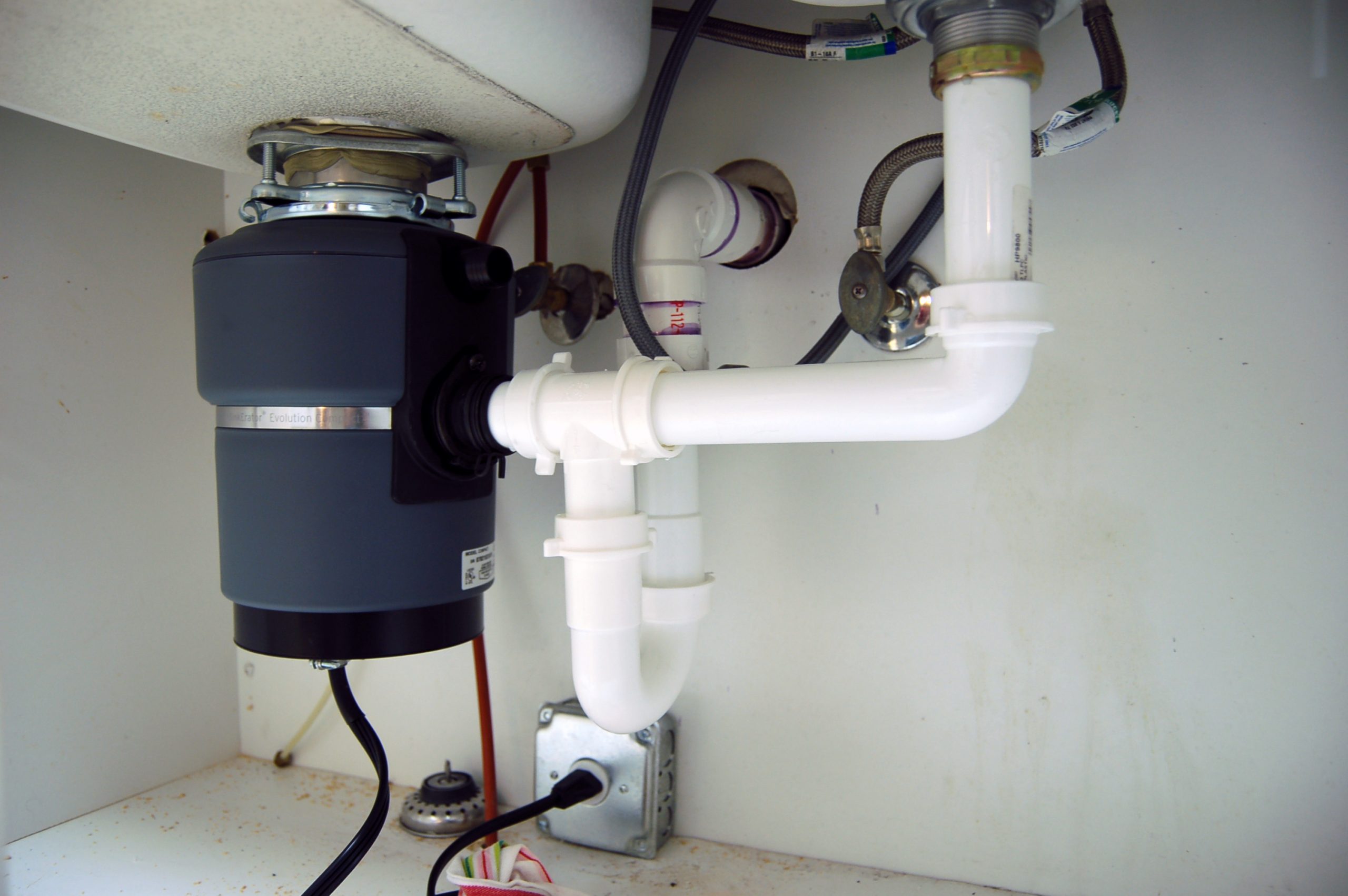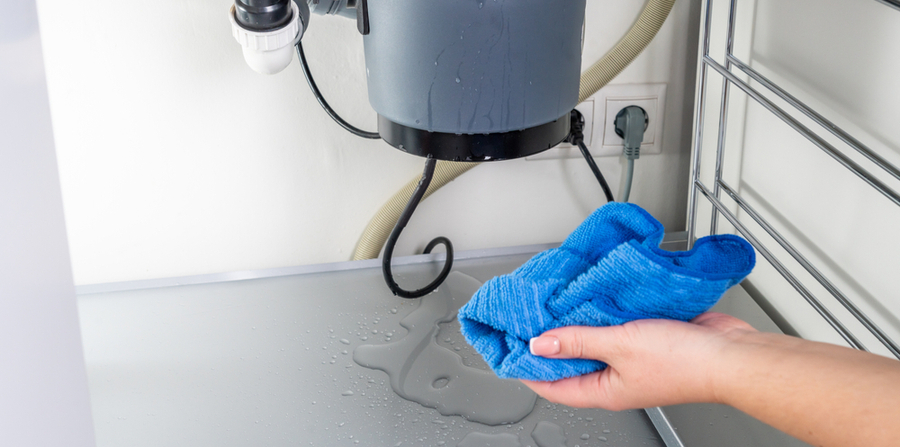Helpful Techniques for Repairing a Dripping Garbage Disposal
Helpful Techniques for Repairing a Dripping Garbage Disposal
Blog Article
We've noticed this post on Why Is directly below on the net and thought it made good sense to talk about it with you on my blog.

Waste disposal unit are essential kitchen appliances that aid in dealing with food waste successfully. However, a dripping garbage disposal can be an aggravating and unpleasant trouble to deal with. Thankfully, numerous leakages can be taken care of conveniently with a couple of simple steps. In this article, we will go over exactly how to take care of a dripping garbage disposal efficiently.
Introduction
Garbage disposals are installed under cooking area sinks and are created to shred food waste right into smaller sized items, allowing it to pass through the pipes system quickly. While these devices are generally dependable, leakages can take place with time due to wear and tear, loose links, or damage to the unit.
Step-by-Step Guide to Repairing a Leaking Waste Disposal Unit
Switch off the Power
Prior to trying any repair work, guarantee that the power to the waste disposal unit system is shut off to avoid the danger of electrical shock.
Situate the Leakage
Recognize the precise location of the leakage and identify the reason
Tighten Connections
Utilize a wrench to tighten any kind of loosened links in between the disposal unit and the pipes system.
Change Seals or Gaskets
If the leakage results from used seals or gaskets, get rid of the old elements and replace them with brand-new ones.
Patching Cracks or Holes
For splits or holes in the disposal unit, use epoxy or an appropriate patching material to seal the broken area.
Recognizing the Source of the Leak
Before trying to take care of a leaking garbage disposal, it is vital to determine the resource of the leak. This can generally be done via visual assessment or by performing basic examinations.
Visual Evaluation
Inspect the waste disposal unit system very carefully for any signs of water leakage. Pay attention to locations around seals, gaskets, and connection points.
Evaluating for Leakages
One means to evaluate for leakages is by running water via the disposal device and looking for any kind of noticeable indications of leak.
Typical Root Causes Of Leakages in Rubbish Disposals
Worn Seals and Gaskets
Seals and gaskets play a critical role in preventing water from dripping out of the waste disposal unit. With time, these components can degrade, causing leaks around the disposal device.
Loose Links
The links between the garbage disposal and the plumbing system can become loose gradually, creating water to leak out during operation.
Cracks or Openings in the Disposal Device
Physical damages to the garbage disposal, such as cracks or openings in the real estate, can also lead to leaks.
Devices and Materials Needed for Fixing a Dripping Garbage Disposal
Prior to starting the repair procedure, gather the necessary devices and materials, including a screwdriver, flexible wrench, plumber's putty, replacement seals or gaskets, and epoxy or patching product for fixing fractures or holes.
Testing the Garbage Disposal After Repair
As soon as the repair is full, examine the waste disposal unit by running water through it to guarantee that the leakage has been fixed.
Preventive Maintenance Tips to Prevent Future Leaks
To stop future leakages, it is vital to carry out normal upkeep on your waste disposal unit. This consists of keeping it clean, preventing placing non-food items or difficult things down the disposal, and occasionally looking for leakages or various other issues.
Conclusion
In conclusion, repairing a dripping garbage disposal is a fairly simple procedure that can be finished with fundamental tools and products. By adhering to the steps outlined in this write-up and practicing preventive maintenance, you can maintain your garbage disposal in good working problem and prevent costly fixings in the future.
HERE’S HOW TO FIX YOUR GARBAGE DISPOSAL
WHAT TO DO IF SOMETHING IS STUCK IN YOUR GARBAGE DISPOSAL
If the impeller won’t turn, there’s probably something stuck in the disposal. It could be a steak bone or peach pit, although plumbers report pulling all sorts of inappropriate objects out of disposals, such as bottle caps or aluminum foil. Make sure power to the disposal is off, and look inside to see if you can see the source of the jam.
Never stick your fingers in a disposal. Pull out anything you see with tongs or pliers.
If the disposal still won’t work, it may be time to call a plumber or consider buying a new disposal. GEM Plumbing & Heating is here for all of your garbage disposal needs.
WHAT TO DO IF YOUR GARBAGE DISPOSAL DRAIN IS CLOGGED
Take everything out from underneath your sink and put a bucket or other container under your disposal to catch any water that drains out. Disconnect your disposal from the power supply. If it’s plugged into a wall outlet, unplug it. If it’s hardwired into an electrical box, go to the electrical panel and turn off the breaker for the disposal. Pour ¼ cup of baking soda into the drain, followed by ½ cup of white vinegar. Give the solution a few minutes to fizz and do its work. Look into the disposal with a flashlight to see if you can see an object that might be causing the clog. If you see it, remove it using tongs or pliers. MORE TIPS ON DEALING WITH A CLOGGED GARBAGE DISPOSAL
Never use drain cleaner in a garbage disposal. It can damage the plastic parts inside the disposal. You can also be splashed with the caustic liquid while working to clear the clog. Beware! Never stick your fingers into a garbage disposal. Trust us — not a good idea. In many instances, your dishwasher drains through your garbage disposal. This allows the disposal to grind any large food particles that may be drained out of your dishwasher. There are some jurisdictions, however, where the plumbing code prohibits such a connection. WHAT TO DO WHEN YOUR DISHWASHER DRAINS THROUGH THE DISPOSAL
Run some water in the sink so your plunger has at least a ½-inch of water to create a seal and plunge vigorously up and down several times. You may need to repeat this several times. Run hot water down the drain to clear any residue that remains.

As a serious person who reads on Why Is , I think sharing that excerpt was a smart idea. Enjoyed our write-up? Please share it. Let another person locate it. Kudos for your time. Kindly check our blog back soon.
Call Today Report this page